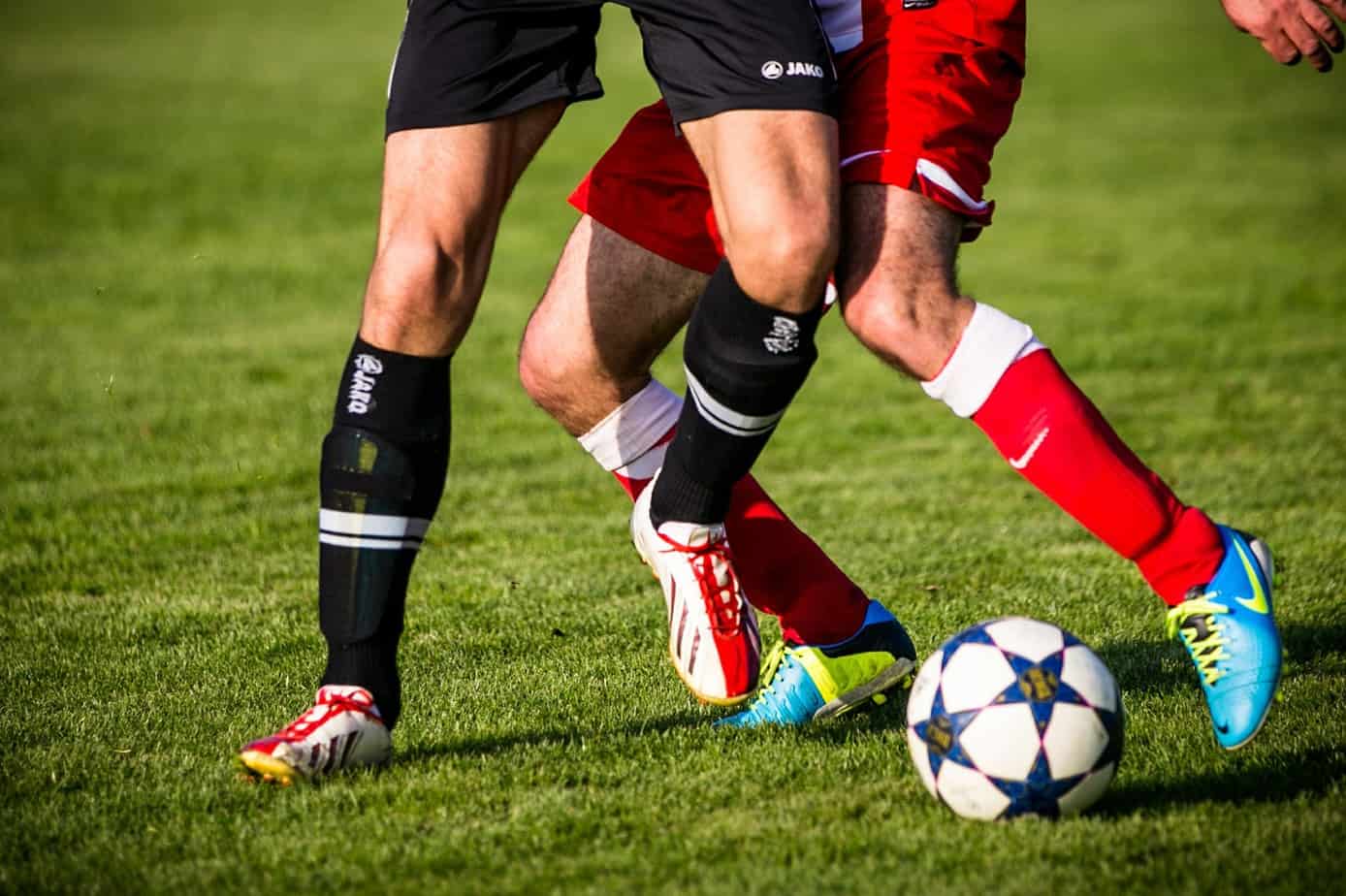Contents of Article
- Objective
- What the researchers did
- What the researchers found
- Practical Takeaways
- Author’s comments
- References
- About the author
Objective
Team ball sports, such as football and rugby, are extremely demanding and can, therefore, lead to a remarkable level of fatigue. While different sports have been investigated, no previous research has systematically reviewed the differences in sports and markers of fatigue. Therefore, the goal of this study was to investigate post-match recovery of different performance and biochemical markers typically used to monitor fatigue/ readiness in team ball sports.

What the researchers did
Twenty-eight studies were included for analysis. The most common performance measures used were the countermovement jump (CMJ) and sprint tests, while creatine kinase (CK), cortisol (C), and testosterone (T) were the most frequently used biochemical markers, respectively.
What the researchers found
The CMJ was mostly affected for up to 12 and 24 hours after a match. In comparison to other sports, basketball appears to affect CMJ performance for a longer period of time. Sprint performance is mostly affected on the first measure after a match and also affected to a greater extent after a soccer match in comparison to other ball team sports.
Although in most cases these performance markers (i.e. CMJ and sprint performance) seem to return to baseline within 48 hours, longer periods were observed for CMJ (i.e. 72 hours) and sprint performance (i.e. 96 hours) after a match. Importantly, the time needed for these performance measures to return to baseline seems to be dependent on the competition level of the athlete, with lower competition level athletes demonstrating longer recovery periods in comparison to higher competition levels (e.g. amateur vs professional).
In some of the studies covered in this systematic review, CK did not return to baseline within the times of measurement, while in other studies, CK returned to baseline 42, 48, 72 or 120 hours after a match. Peak CK after exercise and time-to-return to baseline appears to be greater in football and rugby in comparison to other team ball sports. This is likely to due to the greater number of high-intensity efforts performed during a match, such as accelerations/decelerations, sprints, collisions, and total running volume.
Cortisol seems to peak immediately after a match and return to baseline in different time periods (i.e. 14-72 hours). For the same reasons as CK, the recovery times of cortisol are also longer in rugby and football. Different findings can be found in testosterone changes after a match. There seems to be a trend for testosterone to decrease after a match and then increase in the longer periods of recovery (i.e. 24-48 hours post-match).
Practical Takeaways
The results from this study demonstrate that it takes approximately 48 hours after a match for an athlete to recover from a performance standpoint and up to 72 hours for certain biochemical markers to recover (e.g. CK). These findings are important because they demonstrate that although athletes can regain performance (e.g. CMJ and sprint speed) 48 hours after a match, it does not mean that athletes are fully recovered from a muscle damage standpoint, for example.
Therefore, at certain periods within the season, athletes should be allowed to fully recover, or at the very least, strategies should be implemented to speed up recovery in order to avoid accumulative fatigue. In addition, when working with sports where athletes are exposed to higher volumes during matches, such as rugby (i.e. 80 minutes) and football (i.e. 90 minutes), practitioners must be fully aware that the time needed to recover is longer, including how long it takes to fully recover.
Author’s Comments
“This study aimed to investigate the recovery time of different markers of fatigue in different team-sports. However, it is important to mention that from the 28 studies used for analysis, only five did not refer to football and rugby. Further research investigating the effects in other team ball sports are therefore warranted.
When working with team-sport athletes, after a match, I normally allow 36-48 hours for recovery and start the training week with a low-volume and low-intensity field session (see my second study review in this issue of the Performance Digest for an example). Supporting the findings that athletes can still perform close to their maximum without being fully recovered (e.g. increased biochemical markers), I believe that athletes should have a full recovery time-period frequently (e.g. 48-72 hours every 4-6 weeks).
However, these decisions will be highly dependent on the competition schedule. Some good options can be to rest an athlete for a game (e.g. full weekend off), a training week, or part of the training week (e.g. weekend and beginning of the week). These practices are very common in professional sports and can be applied across the board to various levels of competition.
Lastly, it is important to understand that fluctuations in training loads are needed to ensure periods where athletes are given the opportunity to recover and adapt. During these periods, when the total training load (i.e. combination of field, gym, meetings, etc.) is lower than what the athletes are used to, practitioners can expect a reduction in accumulative fatigue (e.g. biochemical markers) and therefore an increase in recovery and ‘freshness’.”
- HOW LONG DOES IT TAKE TO FULLY RECOVER AFTER A COMPETITIVE MATCH? Doeven SH. et al., (2018). BMJ Open Sport Exerc Med. 4. https://www.ncbi.nlm.nih.gov/pubmed/29527320


